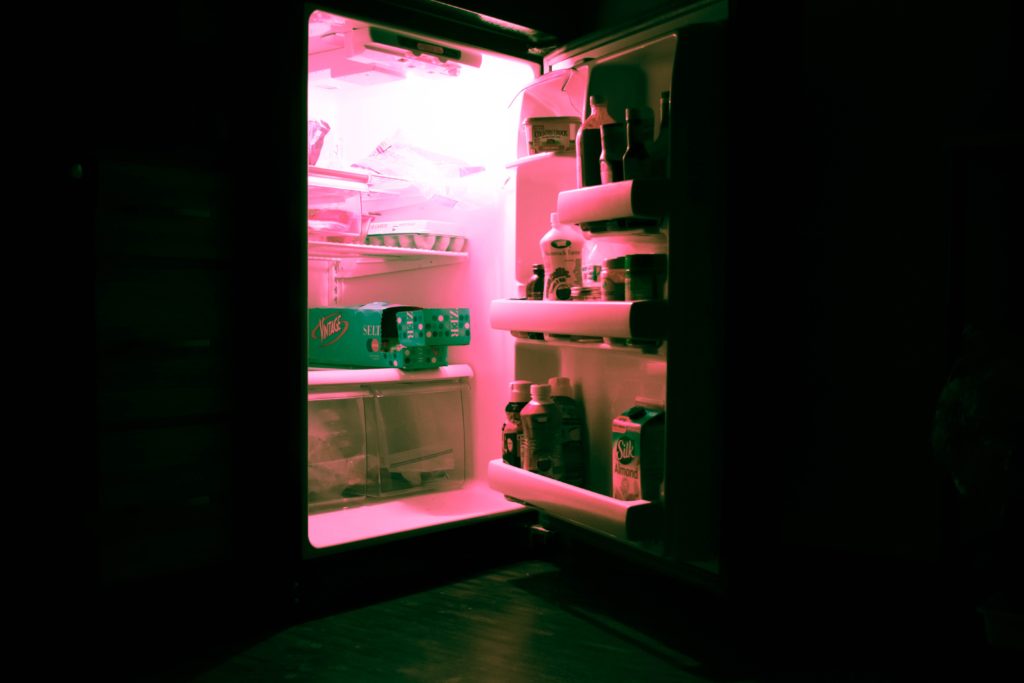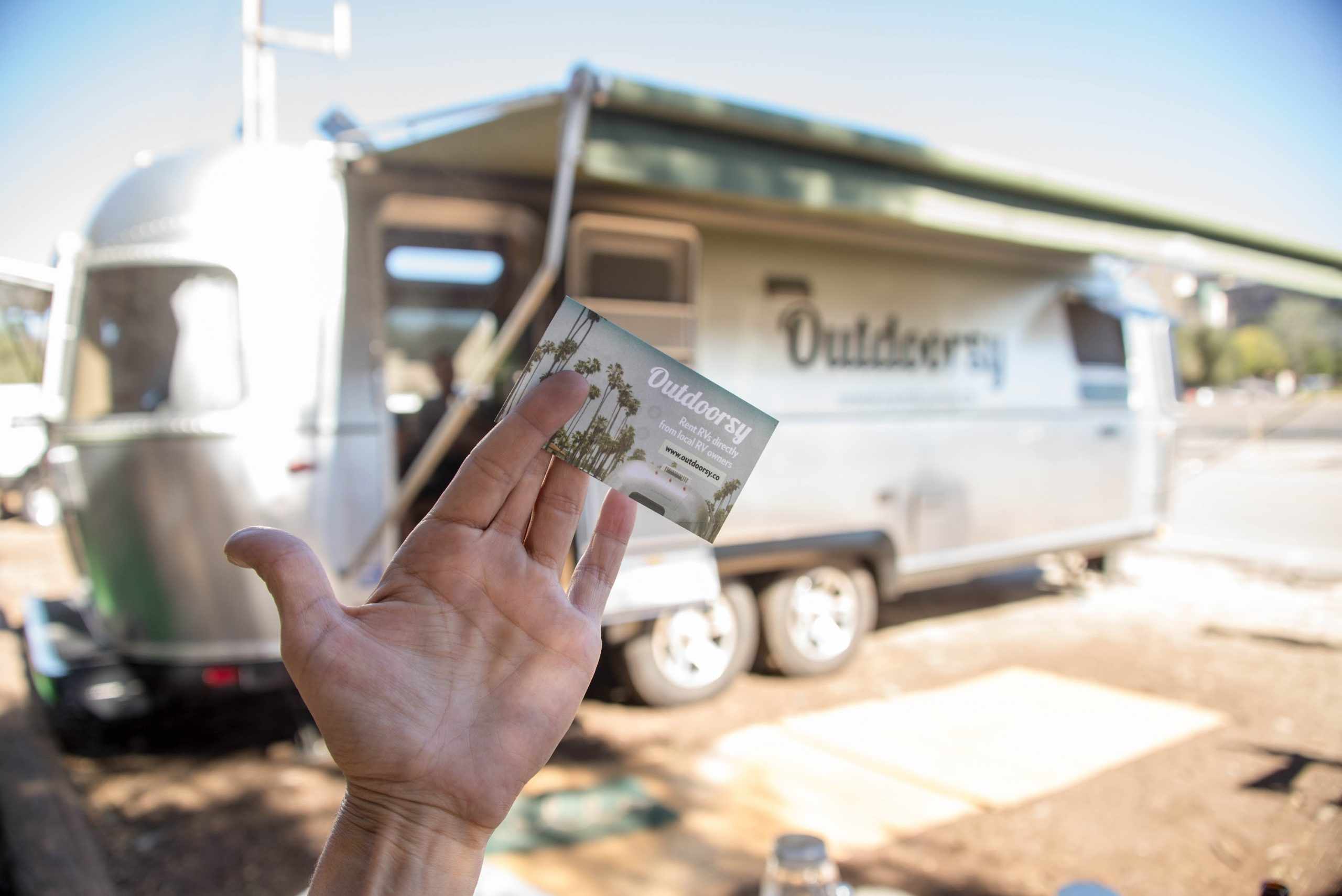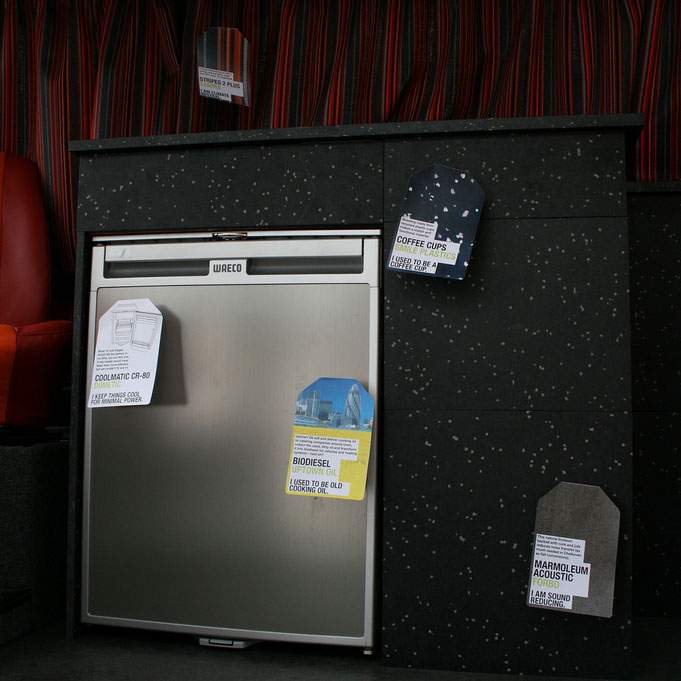Ahhh, the wonderful RV camper refrigerator – you either love them or have a very rocky relationship with them. Ask ten RVers what their thoughts are on RV fridges, and you’ll get ten different answers. So why are they such a mystery?
Try Before You Buy: RVs For Rent Near You
How do RV Refrigerators Work?
Most RV refrigerators use a different cooling method than the standard fridge you have at home. RV fridges operate using gas absorption, which involves heating ammonia to magically cool the refrigerator. Unlike your fridge at home, there are no moving parts in an RV refrigerator – things happen by heating the cooling unit either with propane or an electric heating element, depending on what source you use.
So what’s this mean to the RV traveler? Well, when they work, they work. However, when things aren’t working quite right (or not at all) it can be a mystery to pinpoint the exact problem. Keep that in mind and make sure things are up to snuff before hitting the road. We’re here to be your camper refrigerator guide!
Camper Refrigerator Types
There are four types of RV refrigerators:
- compressor refrigerator
- absorption refrigerator
- residential refrigerator
- hybrid camper refrigerator

Compressor Refrigerators
Compressor fridges rely on AC/DC power. So, when you’re plugged in at your campsite, shore power keeps them running. While you’re on the road or boondocking, you’ll have to count on your RV batteries to keep them powered.
Absorption Refrigerators
There are two types of absorption refrigerators for RVs:
- 2-way RV refrigerator
- 3-way RV refrigerator
Most RVs will have this type of camper refrigerator.
2 Way RV Refrigerator
2-way RV refrigerators can run off AC power (from shore power or a generator) or LP gas.
3 Way RV Refrigerator
3-way RV refrigerators can run off AC power, DC power, or LP gas. Because of this, they are one of the most flexible of the camper refrigerator options.
With both 2-way and 3-way fridges, you can save power by switching to gas. This means you can stay unplugged for longer. However, they often don’t cool as quickly or as evenly. Luckily, we have tips to help with that!
Residential Refrigerators
Residential-style refrigerators are typically less expensive, cool more evenly, and have a greater storage capacity. But, they can only run off of shore power. To keep them running while your RV is not plugged in, you’ll need an RV inverter or generator.
Hybrid Camper Refrigerator
This type of RV fridge is a combination of an absorption and compression fridge. The refrigerators will give you the best of both technologies.
RV Refrigerator Alternatives
Additionally, a lot of RVers choose to bring along a chest-type portable refrigerator that works more like your home fridge. These compressor-based chests operate on 12 or 120 volts and are extremely efficient. The downside? You’ll need to have lots of battery life (or solar, or plan to run your generator) if you plan on doing any long-term boondocking with one of these.
Still, they are a fantastic option if you have space. Once you’ve got the fridge all figured out, these five smart solutions will help you optimize your RV kitchen space too.
Where to Find the Best RV Refrigerators
There are a lot of options when it comes to putting a refrigerator in an RV and even more places to shop for them.
To help narrow it down, two of the most popular brands to look into for your motorhome or travel trailer refrigerator are:
Dometic RV Refrigerator

For owners with small to mid-size RVs, consider the Dometic DMC4081CFRH. The fridge is compact at 6.7 cubic feet, with a 5.5 cubic foot refrigerator and a 1.2 cubic foot freezer. The fridge features a user-friendly digital thermostat control, adjustable shelves, and a built-in LED light. It operates on AC/DC power, making it suitable for various environments. The Dometic DMC4081CFRH is known for its energy efficiency and quiet operation. It is popular among RV and boat owners who value these features.
Dometic has varying types and sizes of RV refrigerators, as well as air conditioner units and more to fit your RV needs!
Norcold RV Refrigerator
The Norcold N3150AGL is a 3-way RV refrigerator with a 15-cubic-foot capacity and can run on AC/DC power or propane. The N3150AGL features adjustable shelves/bins, thermostat control, and a built-in LED interior light. It also includes a user-friendly control panel with an LCD display for easy temperature and mode settings. This fridge is designed to provide reliable and efficient refrigeration in mobile environments, making it a popular choice among RV owners and outdoor enthusiasts. Norcold also offers smaller fridge options for those with less space.
Tips to Keep your Camper Refrigerator Running
Now that you’ve found the best fridge for your rig, here are some tips to help you get the most out of that RV refrigerator.
1. Don’t pack it completely full
RV fridges work best when they have some empty space for air to circulate. To help out, consider using a small battery-operated fan to cool things more evenly inside the fridge.
2. Make sure your RV refrigerator is level
RV refrigerators need to be level to operate. Since there is magic gas absorption stuff happening, the unit needs to be level so that the gas can properly flow through the cooling unit. What’s this mean? Don’t park on a steep incline where things are seriously out of level – this can cause permanent (and expensive) damage to the fridge. When you are traveling, the magic juice inside the cooling units sloshes around, so you don’t have to worry about staying level while going down the road. It’s when you are parked when things can go wrong.
3. Pre-cool or buy cold drinks before putting them in the fridge
It can take some time for an RV fridge to get to the proper cooling temperature, so you can keep the temp from fluctuating by putting in already cold beverages.
4. Park your RV in the shade when it’s hot
RV fridges respond to the weather outside. Seriously! If it’s boiling hot outside, your fridge will most likely have a little jump in temperature. Conversely, if you are camping in cold temps, you might need to raise the temperature of your fridge. If it’s super hot outside, try to park your rig in the shade on the fridge side. This helps to keep your refrigerator operating efficiently.
5. Turn it on ahead of time
Since they can take a while to cool, turn your camper refrigerator on a day before you plan to leave or stock it with food.
6. Check the refrigerator roof vent
If the vent carrying warm air away from the fridge is clogged with debris, it can cause the unit to work inefficiently or not at all.
7. Install a 12-volt fan
Sometimes installing a small fan to help draft the warm air away from the fridge does wonders. They can be purchased online and installed by you or an RV dealership. Note: This is not the same fan that helps circulate air inside the fridge.
8. Use a fridge thermometer
If you are questioning whether or not your unit is running properly, purchase a cheap thermometer. The normal temperature for a fridge is below 40° F. Monitoring this will ensure that your food is staying at a temperature that prevents spoiling and harmful bacteria from growing.
These eight tips can keep your fridge cool and running smoothly.
EXTRA TIP: If you are questioning whether or not your unit is running properly, purchase a cheap thermometer. The normal temperature for a fridge is below 40° F. Monitoring this will ensure that your food is staying at a temperature that prevents spoiling and harmful bacteria from growing.
RV Fridge Maintenance Tips
Maintaining your RV refrigerator is essential for keeping it efficient, extending its life, and ensuring your food stays fresh on the road. Here are some key maintenance tips to keep your RV fridge in top shape:
Clean the Coils Regularly
- Why: Dust and debris on the back coils can make the fridge work harder, reducing efficiency.
- How: Every few months, vacuum or gently brush the coils to remove dirt and improve airflow.
Check Door Seals and Gaskets
- Why: Poorly sealed doors let cold air escape, causing the fridge to consume more energy.
- How: Close a piece of paper in the door and try to pull it out; if it slides out easily, the seal may need repair or replacement. Clean seals regularly with a damp cloth to keep them flexible.
Defrost the Freezer
- Why: Frost buildup limits space and reduces cooling efficiency.
- How: If your fridge doesn’t have auto-defrost, turn it off and let the ice melt away. Avoid using sharp tools to remove ice, as they can damage the interior.
Keep the Vents Clear
- Why: Blocked vents restrict airflow and overheat the fridge.
- How: Regularly inspect the vents on the fridge’s exterior and remove any obstructions, dirt, or debris that could block airflow.
Inspect and Clean the Burner (for Propane Fridges)
- Why: Soot or buildup on the burner can reduce efficiency and potentially lead to malfunctions.
- How: Turn off the fridge, remove the burner cover, and clean any debris using a soft brush. If unsure, have a professional inspect it annually.
Reduce Frost Buildup
- Why: Frost buildup can reduce cooling efficiency.
- How: Minimize the number of times you open the door, use a fan to circulate air, and cover liquids and food to reduce moisture.
Turn Off When Not in Use
- Why: Constant operation when the fridge isn’t needed adds wear and reduces its lifespan.
- How: If your RV is in storage or you’re not using it for a while, turn off the fridge and leave the door open to prevent mold and odors.
By following these maintenance tips, you’ll help ensure that your RV refrigerator runs efficiently, keeps food fresh, and lasts longer—no matter where your travels take you.
RV Refrigerator Troubleshooting
Here are some common RV refrigerator issues along with troubleshooting tips to help identify and fix problems on the road:
Refrigerator Isn’t Cooling Properly
- Check Power Source: Ensure the fridge is properly connected to its power source, whether AC, DC, or propane.
- Inspect Temperature Setting: Verify that the thermostat is set to the correct temperature (34-40°F for the fridge).
- Ensure Leveling: Most RV fridges need to be level to work efficiently, especially absorption fridges. If your RV isn’t level, the cooling system may not work correctly.
- Check for Air Blockage: Make sure there’s proper airflow around the fridge and inside the cabinet. Blocked vents or a crowded interior can impact cooling.
- Consider a Fridge Fan: Using a small fridge fan can help circulate air more evenly and prevent hot spots.
Fridge Won’t Turn On
- Confirm Power Supply: If it’s an electric fridge, check the power outlet and circuit breakers. If it’s a propane fridge, make sure the propane tank is on and that there is propane available.
- Inspect Power Switch and Fuses: Look for blown fuses or tripped breakers, and check that the fridge’s power switch is in the “on” position.
- Test on Different Power Sources: If it’s a multi-power fridge, try switching between AC, DC, and propane to see if it works on a different source.
Fridge Works on Electric But Not on Propane
- Inspect the Burner and Chimney: If there’s a propane issue, soot or dirt might be clogging the burner or chimney. Clean them to remove blockages.
- Check the Thermocouple: A faulty thermocouple won’t detect the pilot light, causing the fridge to fail on propane mode. A thermocouple replacement may be necessary.
- Examine the Gas Line and Valve: Check if the gas line and valve are properly open and that there’s no air in the line. Purge the line if needed by lighting another propane appliance first.
Propane Smell or Leak
- Turn Off Gas: Immediately turn off the propane supply if you smell gas.
- Check for Leaks: Use soapy water to spray connections and look for bubbles to identify leaks. Replace or tighten any faulty connections.
- Seek Professional Help: If the issue persists, consult a professional as propane leaks can be hazardous.
Fridge Isn’t Switching Power Modes Automatically
- Inspect the Control Board: RV fridges have a control board that manages power switching. If it’s malfunctioning, it may need to be replaced or repaired.
- Manual Switch Test: Try switching power modes manually. If it works manually but not automatically, the automatic switching function could be the problem.
Fridge is Making Unusual Noises
- Secure the Fridge and RV: If it’s an absorption fridge, noises can result from the RV being unlevel or from loose parts. Ensure the RV and fridge are on stable surfaces.
- Inspect the Fan: Some RV fridges have cooling fans that can become noisy if dirty or loose. Clean or tighten the fan if needed.
- Check the Coils: Rattling noises could come from loose or vibrating coils, which may need to be secured.
Fridge Leaks Water Inside
- Defrost Drain Clog: A clogged defrost drain can cause water to pool inside the fridge. Locate the drain hole, usually at the back, and clear any blockages.
- Humidity and Condensation: Excessive moisture from humid air can lead to condensation. A small fridge fan inside can help reduce humidity.
Error Codes or Warning Lights
- Consult the Manual: Refer to the fridge’s manual to interpret specific error codes.
- Power Cycle the Fridge: Sometimes, turning the fridge off and back on can reset error codes.
- Contact Manufacturer or Service: If an error persists, consult a professional or the manufacturer for advanced troubleshooting.
With these tips, you can tackle most common RV fridge problems. However, if the issue is persistent or complex, contacting a professional for repairs may be the safest option.
RV Fridge FAQ
Here’s a comprehensive FAQ for RV refrigerators that covers common questions and concerns.
How Long Will My RV Fridge Last on Propane?
- Duration: Typically, an RV fridge can run for 2-3 weeks on a single 20-pound propane tank, depending on factors like outside temperature, fridge size, and settings.
- Efficiency Tips: Keeping the fridge level, minimizing door openings, and maintaining the seals help improve propane efficiency.
How Long Does an RV Fridge Take to Cool Down?
- Pre-Cooling: An RV fridge can take 4-8 hours to reach optimal cooling temperature, so it’s best to turn it on the day before you plan to stock it.
- Speeding Up Cooling: Load the fridge with pre-cooled items and avoid opening the door frequently to maintain the temperature.
How Often Should I Defrost My RV Fridge?
- Regularly: Defrost whenever frost buildup reaches around 1/4 inch thick, as it can reduce efficiency.
- Defrosting Tips: Turn off the fridge, remove items, and let the ice melt naturally. Avoid using sharp tools to remove ice.
Why Does My RV Fridge Have Hot and Cold Spots?
- Air Circulation: RV fridges sometimes lack even air circulation, leading to uneven cooling.
- Solution: Use a small fridge fan to circulate air or reorganize items to ensure that cold air reaches all areas.
Can I Run My RV Fridge While Driving?
- Yes, with Caution: Many RVers run their fridge on propane while driving, but make sure all connections are secure and that it’s legal in your area.
- Alternative: Switch to DC power if your fridge has that option and your RV has a strong battery setup.
How Do I Store My RV Fridge When Not in Use?
- Turn Off and Empty: Turn off the fridge and remove all food.
- Leave the Door Open: Prop the door open slightly to prevent mold and odors.
- Clean Thoroughly: Wipe down the interior with mild soap and water.
Use these FAQs to help keep your RV fridge running efficiently on all your adventures.
Keep your cool
Don’t let melted ice cream ruin your trip! Keep your drinks cold and ice cream frozen with a good refrigerator in your RV.
And in case you run into fridge trouble on the road, make sure to check out this guide to finding RV mobile repair services.









